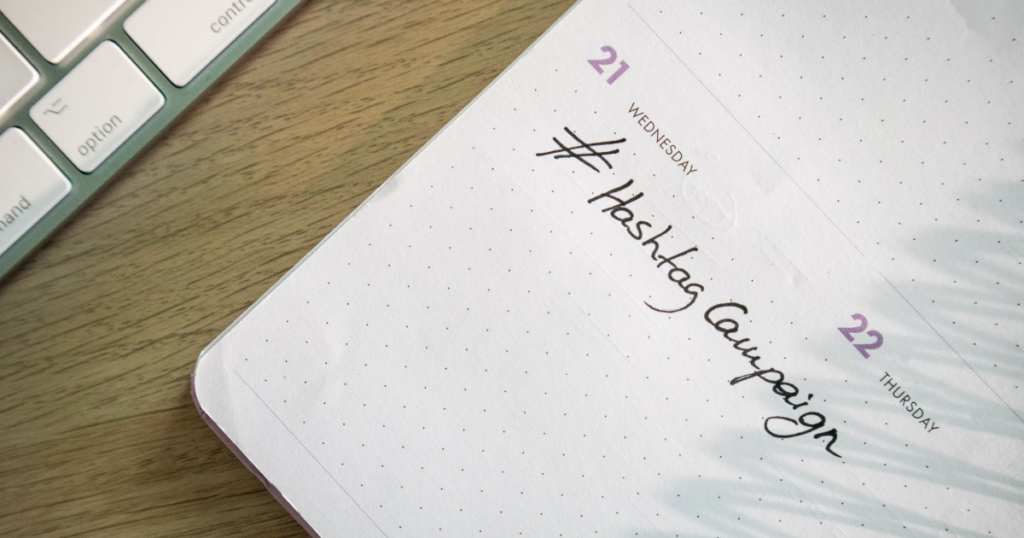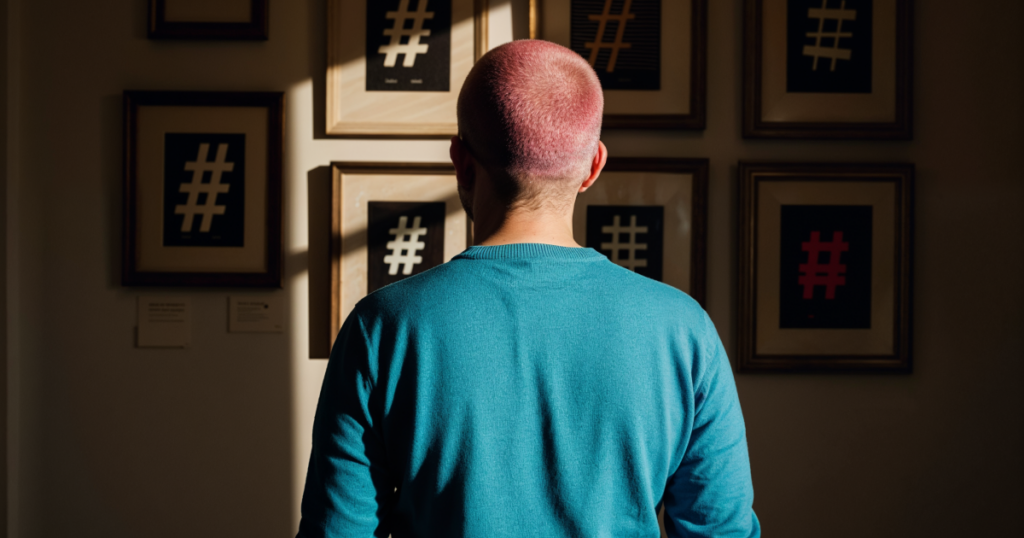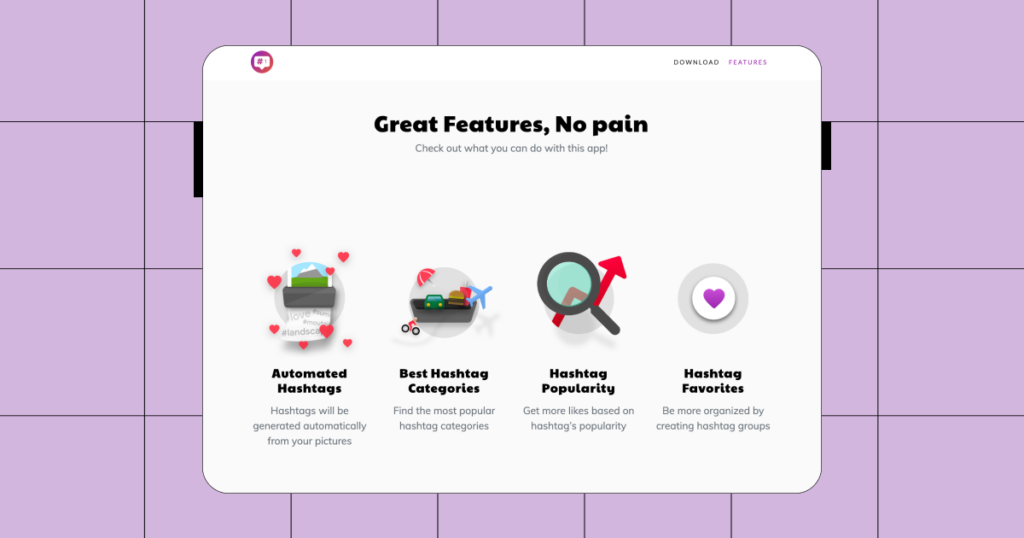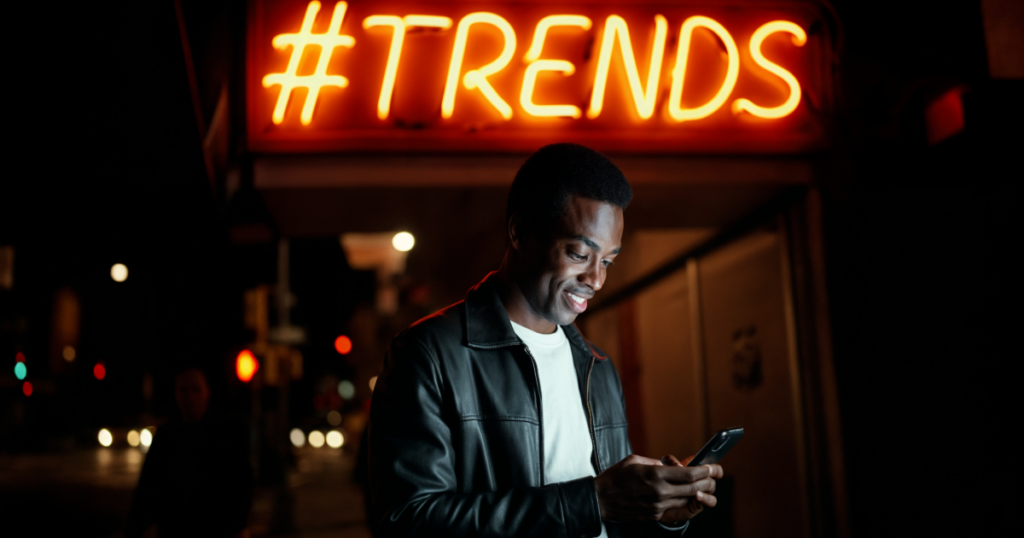With over 2.4 billion active users every day on Instagram, standing out as a content creator may seem daunting. But at your fingertips, you already have one of the most powerful marketing tools in modern history — hashtags.
But just slappin’ up a few hashtags on Instagram isn’t enough; you’ll need to master hashtag analytics by determining not just which hashtags to employ, but how to optimize them to explode your reach, engagement, and growth.
Today, we’ll guide you through strategically choosing your hashtags, as well as the tools and techniques you’ll need to analyze their performance. Slaying at hashtag analytics is exactly what will help you to expand your community, better connect with your audience, increase your visibility, and up your Instagame!


Many people make the mistake of treating hashtags as cutesy phrases added to a post for emphasis, when really they’re the secret ingredient to more people discovering your content.
Here’s more about why they matter:
- Hashtags boost engagement: Instagram posts using at least one hashtag typically see 29% more interaction than those without any hashtags. The catch is that you can overdo it and kill engagement levels (more on that in a bit).
- They increase your visibility: Hashtags can impact the likelihood of your content being discovered by new audiences, not just because of search results, but on the Explore page.
- You can better target audiences: The right hashtags can help you target specific demographics and help you to connect with people interested in your content. Because the average Instagram user is on the app for nearly an hour every day, targeting them with hashtags can help you snag some of that time!
- Build your community faster: Hashtags can connect you with people interested in your content and with fellow creators in your niche. In a way, they’re your competitor, but in another, they’re your next collab. Foster a highly engaged and strengthened community around your content by discovering others and being discovered.


To craft your strategy, you’ll only succeed by understanding the five different types of hashtags:
- Trending Hashtags: Based on popularity, these hashtags are time-sensitive and can offer a temporary boost of visibility. For example, #EarthDay on Earth Day can get you in front of people interested in the topic of the day.
- Branded Hashtags: This one’s unique to your own personal or professional brand and is often a business name, an ultra-concise slogan, or a campaign. This type of hashtag is typically used by marketers to track the impact of others’ use of it as a means of monitoring spread. As of today, Nike’s #JustDoIt remains the most popular branded hashtag of all time.
- Location Hashtags: Most effective for brick-and-mortar offline businesses, location hashtags point audiences to areas where you need them to show up and support you or buy from you. For example, #DallasFoodies, not just #Foodies.
- Niche Hashtags: These allow you to target a specific audience with specificity (it’s also less competitive). So for example, #Y2Kfashion instead of simply #fashion. It helps with your discoverability, and frequent use helps you establish yourself as a relevant part of the niche.
- Event Hashtags: Whether you’re hosting or attending a conference or event, there is likely an affiliated hashtag already created for it, so if you share any shots from the actual event or your time surrounding it, use that hashtag! If you’re looking forward to #SXSW2025, even if you’re just headed out to network and have fun, use the hashtag to be part of the stream of others who are equally excited about next year.


How to Put Together Your Hashtag Strategy
Your strategy is going to absolutely dominate because you know better than to just pick a few popular hashtags, you know that your strategic plan with various types of hashtags will get you in front of the right people at the right time.
Step one: Researching hashtags
- The easiest place to start is Instagram’s own search feature: Use the search bar to see what major accounts are currently doing, but more importantly, pay close attention to the number of posts that are associated with each niche hashtag to determine popularity. It’s the most simplistic exercise to get your feet wet with research.
- Analyze other influencers: Study what the most successful influencers in your niche are using. We’re not saying to copy anyone; we’re saying that there’s no need to reinvent the wheel because plenty of money has been poured into research elsewhere. Find inspiration! Let the effectiveness of other hashtags in use give you new ideas!
- Tap into hashtag tools: Some are free, others are paid, but all offer intelligence on what hashtags are recommended for your content.
– Hashtagify
– RiteTag
– Tailwind
– Hashtag Generator
– TagsFinder
– Toolzu
– AllHashtag


Step two: Balancing your strategy
- Mix up your hashtags: You’ve checked out tools to make recommendations, but don’t let any of the bots convince you to overuse trending hashtags. Try to use multiple types of hashtags in every post. It’s the fastest way to balance your strategy.
- Test your hashtag volume: For years, people stuck to the 10-11 hashtags rule, and now it’s said you should use 3-5, but the truth is that the magic number is determined by your niche and what kind of content you’re creating. Test out various types and number of hashtags to see what performs best with your audience. Instagram allows up to 30, so you have room to experiment. Just don’t overdo it.
- Avoid played-out hashtags: #Love is the most popular hashtag of all time, so you may be tempted to add it to every post, but it will likely just get lost in the sea of unrelated content. Focus on the hashtags that are most relevant to your goals, and you’re halfway through establishing a quality strategy.
Step three: Maintaining relevance
- Keep an eye on trends: Just because you’ve crafted a successful strategy doesn’t mean the established pattern will work forever. Too many times, people find a rhythm and stick with it, only to find their account irrelevant and wondering what went wrong. They didn’t adjust. Track trends — you’ll thank yourself later.
- Keep a running list: Keep a spreadsheet, a handwritten note, a Google Doc, or whatever works for you, and document the 20 or so hashtags that are in your stable. Set a calendar reminder for every 90 days to review the list and update it to make sure that you’re using relevant and effective hashtags.


Next Up Is Analyzing Performance
So you’re feeling out your strategy and after strategy comes implementation (you’ve got this!) and then analysis. This is going to be the key to exploding your growth on Instagram — driving results and iterating your approach.
- Tap into Instagram Insights: We’ve written a thorough guide on using Instagram Insights just for you. The short of it is that if you have a creator (or business) account, you can get tons of data on your hashtags’ performance, as well as your reach and impressions.
We highly recommend paying attention to “Discovery” (how people found your content), which you can find in specific posts by hitting “Insights,” and you’ll quickly get a feel for which hashtags are sources of new viewers.
- Call in the big guns: Third-party analytics tools aren’t often free, but they can give you tremendous insights into your account’s performance. Three interesting options for analyzing how your hashtags are doing are Sprout Social, Iconosquare, and Later.
- Toss in some A/B testing: Common in all forms of marketing, A/B testing presents two versions of similar content — in this case, hashtags — to gauge which performs better. You’d post similar content with different hashtags to see which hit. Some companies invest tons of money in these tests, but you’re smart enough to do some quick experimenting.
Plus, you absolutely must avoid using the exact same hashtags in every single post, or it could appear spammy and ultimately trigger Instagram’s algorithm, which could ban (or shadowban) you.


Best Practices for Your Hashtag Strategy
You want your brand to expand, for your content to thrive, and for new people to find you every day while existing followers stay highly engaged. Here are some best practices for your hashtag game:
- Where to place your hashtags: You can place hashtags in your caption or in your first comment, and both are viable options, so experiment with placement. Some like a clean caption, while others just use a few paragraph breaks before slidin’ in the hashtags.
- Avoid certain hashtags: While Meta doesn’t make public the specific lists of banned hashtags, the categories they say could land you in hot water are hate speech, violence, bullying, selling illegal or regulated goods, nudity or sexual activity (this one’s a big one), spam and scams and fraud, intellectual property violations, self-injury, or false information. Kinda vague, but you get the idea.
- Get engaged: Don’t just use hashtags, go like, comment, and follow accounts that are using the same (or similar) hashtags. Believe it or not, top influencers got where they are by actively participating and building loyalty.
- Hashtags in Stories: Don’t limit your hashtag use to just photos you’re posting, because you can use up to 10 hashtags in Stories, boosting your discoverability. You can even add them as text to your image, make them tiny and blend with the background and/or cover with a sticker. This last bit might not be a long-lasting option, but for now it’s a method some use to keep their aesthetic.
- Hashtags in Reels: Because Instagram prioritizes Reels content, we recommend mixing up trending hashtags and niche hashtags to improve your chances of showing up on the Reels Explore page.
[add image of content creator]
- Align hashtags with seasons, events, and content themes: Plan your hashtag use around your content calendar (here’s how to build one if you haven’t yet). Maybe your move is #MotivationMonday or #TipsyThursday, or you rope in whatever seasonal hashtags are in play (when relevant), like #PSL #BratSummer. Capitalize on what people are currently feeling excited about and apply it to your brand.


But Watch Out for This Trap
Even when your strategy game is strong, there are traps out there waiting for you to step into them, and sometimes you’ll never know what happened; you’ll just immediately feel engagement plummeting. But you’re in control and can repair the damage.
What happens to some is called “shadowbanning.”
It’s where Instagram may limit the visibility of your posts instead of outright banning you — typically for using naughty hashtags — so if your engagement levels suddenly drop, it’s possible you’ve been shadowbanned.
You can check your account status anytime, and there are third-party checkers that may or may not be reliable (like Spikerz). To bounce back after a shadowban, take a break from the platform for a few days, avoid the hashtags you think might have caused the problem, and start testing again for new results.
Although Instagram (and Meta as a whole) refuses to publish lists of what words and phrases can get your account banned or shadowbanned, just try to avoid pushing the boundaries — you can rock your content without threatening violence or saying wacky falsehoods like the moon being filled with mole people, can’t you!? Of course you can.


You’ve Got This!
You’re mastering hashtag analytics because you’re not just going to choose the right hashtags based on instinct; you’re now going to do it based on data, then you’re going to continuously refine your approach, troubleshoot, and adapt. You’re going to keep your content fresh and, most importantly, discoverable.
Using some of the tools we introduced, along with the analytical mindset, you’re going to dominate the wide world of Instagram. It’s a competitive space, but friend, you just got competitive — you’ve got this!
The contents of this blog were independently prepared and are for informational purposes only. The opinions expressed are those of the author and do not necessarily reflect the views of ManyChat or any other party. Individual results may vary.



